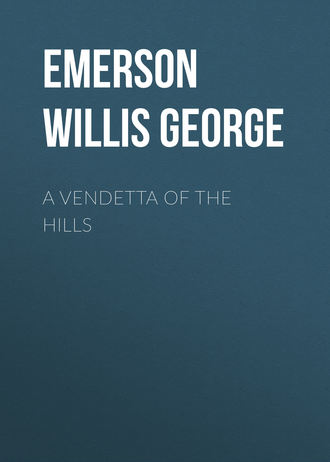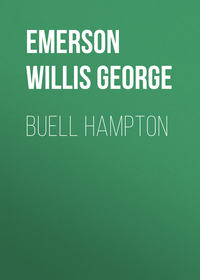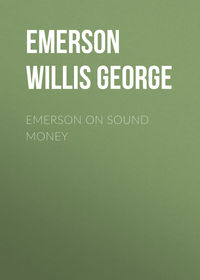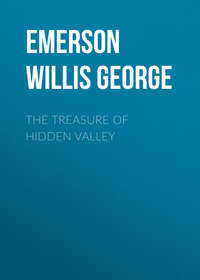 полная версия
полная версияA Vendetta of the Hills
Sing Ling came across the patio with a welcoming smile.
“Dinnel all leady,” he announced in tinkling syllables.
“And we’re all ready, too, Sing Ling,” laughed Merle, as she went up and shook the Chinaman’s hand.
“Me vely glad to see you again, missie.”
“I didn’t know you were old friends,” exclaimed Munson, in some surprise.
“Oh, didn’t you? Sing Ling has been Mr. Robles’ cook off and on for nearly twenty years. When Mr. Robles is abroad of course he works elsewhere. That’s why you found him at San Antonio Rancho.”
“But Dick told me he was his cook – had been for several years.”
“With Mr. Robles’ tacit consent, then,” replied Merle.
The Chinaman was grinning in a vacuous sort of way, as if all the conversation was so much Greek to him.
“Sing Ling, you scamp,” cried Munson, “I begin to understand now how Mr. Robles comes to know so much about Dick and myself. You’ve been telling tales out of school.”
“Oh, no; me cookee allee time; me no go school,” replied the Celestial, in guileless incomprehension.
After the dainty luncheon, Merle proposed that they should visit the watch tower. There they found the Mexican lad on duty. He had been strumming a guitar to pass the time, but at the sound of voices had sprung erect and alert. Munson noticed at a glance that the big telescope was ready trained on San Antonio Rancho.
“Como estas, Francisco?” asked Merle, addressing the boy in Spanish.
“Bien, gracias, senorita,” he replied, with a deferential bow. But he averted his glance instantly, and gazed out on the landscape.
Merle turned to Munson: “We are not allowed to converse with the servants here,” she explained. “Just a word of greeting – that is all.”
“I’m under similar orders,” replied Munson. “Not that it much matters in my case, for I haven’t your accomplishment of knowing the Spanish language.”
“Oh, Grace and I speak Spanish almost as well as English. You see, Mr. Robles, who has always been interested in us two girls, insisted that we should be taught his native tongue.”
“And we’ve been all over Spain, too,” interposed Grace. “Lived there a whole year. That’s where I fell in love with the violin and took my first lessons.”
“An inspiring country obviously,” remarked Munson with a flattering gesture.
“Thank you for the subtle compliment,” laughed Grace, tossing the vagrant, wind-blown curls from her face.
“I never come here but I love to gaze at the view,” observed Merle. “Is it not glorious – this valley of Tehachapi?”
It was indeed a glorious scene – that noble sweep of verdured plain, stretching north far as the eye could reach, on the south guarded by the rugged pass, east and west embosoming hills twenty miles apart etching the sky with peaks and domes and lines of beauty. For a few moments all three visitors to the tower remained silent and enraptured.
Grace was the one to break the spell.
“I’m going down now to the library to inspect your work, lieutenant,” she announced with a roguish smile.
“Spare me,” protested Munson. “But perhaps you would help me with some of those Spanish books,” he added as an afterthought.
“Delighted! Come along.” And she led the way down the winding iron staircase.
In the library the three were for the first time during the visit quite alone. Munson carefully closed the door.
“Now I’ve got the chance, Miss Merle,” he began, “I want to compliment you on your splendid bravery last night.”
“Bravery!” she laughed. “Why I was so scared I could hardly stand.”
“Well, you deceived us all finely, then.”
“And that Ben Thurston – what an old ruffian!” cried Grace. “But I agree with you, Mr. Munson; Merle was a hero.”
“A heroine,” suggested the lieutenant.
“Oh, in these days we don’t make such fine sex distinctions,” laughed Grace. “A real hero, that’s what I call her.”
“Rubbish,” protested Merle. “I just did what anyone else would have done in the circumstances.”
“I’m afraid men are not so ready of wit in an emergency as are women,” remarked Munson.
“Just listen to that, Merle,” exclaimed Grace. “I verily believe the lieutenant is a suffragette.”
“A suffragist,” corrected Munson, emphatically this time. “I’m hanged if I’m going to wear a petticoat even if the women are determined to don – the other things.”
They all laughed merrily.
Grace turned and began examining the carefully written library cards.
“Any more news from Mr. Willoughby?” asked Merle, with a look of solicitude in her eyes.
“Nothing,” replied Munson. “But I’m beginning to put two and two together,” he continued. “Early every morning a horseman comes down here from the mountains and evidently brings a report of some kind to Mr. Robles. And when he rides off again Sing Ling has always ready a basket of grub, all sorts of nice things, fried chicken, spiced beef – ”
“Sounds quite epicurean,” interrupted Grace, tossing away the card she had been pretending to examine.
“Yes, hang it all – just the little delicacies Dick used to like.”
“I never knew you fared so bountifully at San Antonio Rancho,” remarked Merle with a smile.
“Oh, Dick’s no candy kid, as you know well,” replied Munson. “It was mostly rough and ready fare all right, but Sing Ling had a knack of adding a few dainty trifles to our meals, and it strikes me that for the purposes of this mysterious and capacious lunch basket he is trying to excel himself.”
“No doubt it goes to Mr. Willoughby,” said Merle. “Well, I’m real glad to know that they are making him comfortable.”
“I guess, though, he’ll miss his occasional visits to La Siesta. Mr. Robles says you were quite right, Miss Merle. Dick is in real danger. Those gunmen of old Thurston have orders to shoot him on sight.”
“I knew it,” exclaimed Merle. “Oh, I’m so thankful he got away. Even though we miss seeing him, he must never run such a risk again.”
“It is all very mysterious,” said Munson, in a musing tone. “And I had no idea, too, that this was such a lovely place. Mr. Robles has taken me around several times. He has the choicest dairy cattle, the finest blooded horses, rare trees and plants from every corner of the world.”
“These are his hobbies,” commented Merle.
“He says he wants to give me some practical lessons in estate management.”
“Why?” asked Grace.
“Well,” laughed Munson, “he thinks I may some day own a rancho of my own. But that will be a mighty long time.”
“Who can tell?” said Merle, glancing mischievously from the lieutenant to Grace. “Even in these humdrum days soldiers have been known to come in and conquer.”
Grace blushed crimson.
“Merle, how dare you?” she exclaimed, half angry, half laughing. “Next time we visit you, Mr. Munson, I’ll have to bring along Tia Teresa.”
“Oh, dear Aunt Teresa has a soft side for the lieutenant,” retorted Merle, with merry audacity.
But Grace had recovered from her momentary confusion.
“Then I’ll help you all I can, Mr. Munson, with dear Aunt Teresa,” she laughingly said. “We’ll send her along tomorrow instead of coming ourselves.”
“Heaven forbid!” murmured the lieutenant, with pious fervor. He, too, had been looking and feeling awkward.
“So we’ll say goodbye for the present,” continued Grace, frankly extending her hand.
“I hope I haven’t said anything to offend you,” stammered Munson.
“It is perhaps what you haven’t said that is the cause of trouble,” laughed the irrepressible Merle.
But Grace had fled from the room, and as the others followed, Merle went on:
“I said when we left home that two would be company but three – a complication. Wasn’t I right, lieutenant?”
“You are always right,” murmured Munson, too bewildered to think of anything else but the obvious gallant reply.
He stood at the gateway watching the two young ladies as they cantered away. At the bend of the road Merle turned round in the saddle and waved her hand. But Grace rode steadily on.
“By jove, that’s as good as telling me that I can sail in and win,” he said to himself. “Thank you, Merle, little girl. Next time Grace and I are alone, my fate will be sealed.”
But no one called again during Mr. Robles’ absence – not even Tia Teresa.
It was toward evening a few days later when the recluse strolled into the library. Munson did not know that he had returned, and rose from his seat in some surprise.
“Still hard at work?” said Mr. Robles, as he nodded and shook hands.
“When did you get back, sir?”
“Last night. And today I have been busy with some important letters.”
“Any word of Dick?”
“There is nothing new so far as I am aware.”
“Mr. Robles, excuse me,” said Munson earnestly. “But I’m anxious on Dick’s account. You know of his whereabouts, of course?”
“I have indicated as much, although for the present I prefer to say nothing.”
“Well, when is he to be restored to liberty?”
“In due time. At latest he will be free on the eleventh of October.”
“Oh, that’s months ahead yet. But why the eleventh of October? You excite my curiosity.”
“The date is not of my choosing – it was fixed many years ago, by another than myself.”
The enigmatic reply puzzled Chester Munson – not only the words themselves, but the tremor of deep emotion in the voice of Ricardo Robles as he gave them utterance.
CHAPTER XXVII – Among the Old Oaks
PIERRE, now my sketches and plans are finished, how am I going to pass the time?” It was some ten days after the affair at La Siesta, and Dick had spent the interval in close and absorbed work over his drawing board. Happy in his occupation, he had not felt the restraints of confinement.
But now that the task was completed, and the big cardboard cylinder containing the set of drawings rested on the ledge of the easel all ready to be sent away on its mission, a feeling of chafing restlessness had ensued.
“Good Lord, a fellow can’t read all day,” Dick went on, half in soliloquy, half addressing his companion.
“Monsieur is comfortable here?” asked the latter solicitously.
“I should say, old fellow. I was never in better quarters in all my life.”
“And zere is nothing more I could get for ze table?”
“For goodness sake, don’t talk like that, Pierre! In any ease I don’t worry about what I eat. But this is a regular Delmonico’s. Guadalupe is certainly a crackerjack cook. She is even better than Sing Ling. Wherever did she learn to turn out all these little delicacies? And just my favorite dishes, too.”
Pierre smiled enigmatically.
“Guadalupe very clever old squaw,” he remarked.
“I would like to know her better. But she keeps out of my sight all the time.”
“Guadalupe is very old. She has her fixed ideas.”
“I suppose that means she does not love the Americans.”
“No doubt. She prefer to be alone – alone with ze white wolf all ze time. And where the white wolf is, monsieur dare not go.”
“I understand that all right,” laughed Willoughby. “I strolled only once toward the log fire, and the brute showed me a set of teeth which I never wish to see again.”
“Ze white wolf guard ze cave well,” remarked Pierre, sententiously.
“Oh, I’m not thinking of trying to run away. You know I would never break my word. But what the dickens am I to do all day long?”
“What do you say? Suppose we go to ze riffle and wash out some gold.”
“Great Scott!” exclaimed Dick eagerly. “That’s not a bad suggestion. But Don Manuel won’t mind?”
“He will be very pleased – he has no use for ze gold.”
“And Guadalupe?”
“Long ago she would have killed you if you had gone zere. But not now. She very old, and all her people are dead.”
“And the white wolf? That confounded beast won’t interfere?”
“No, no. Ze white wolf stay near Guadalupe all ze time.”
“Then, by jove, it’s a bully idea,” cried Dick. “It gets me all right. We’ll turn miners, Pierre, and we’ll have a rare old sack of nuggets to divide when the time comes for me to go free. I’ll be better off in the end than if I were holding down my old job at the rancho,” he laughed gaily.
“I will find ze spades and ze pans to wash ze gravel. When shall we begin?”
“Well, wait now,” replied Dick, glancing reflectively at the roll of drawings. “I’ve got to send these plans away. I want you to get them at once into the hands of my friend, Lieutenant Chester Munson. He will know how to forward them to their proper destination.”
“May I suggest one zing?”
“Go ahead, Pierre. What’s in your mind?”
“I venture to make one little suggestion. Why not ask ze young lady to take ze plans to your friend?”
“Miss Merle Farnsworth?” asked Dick in surprise. “But how am I to do that?”
“I will promise to arrange a meeting – zat is, if you are not afraid of Mr. Thurston and his men.”
“Afraid!” shouted Dick. “You give me the chance to see Merle again, and old Ben Thurston and all his sleuths may go to blazes.”
“Zen I will arrange, and I zink it will please ze young lady very much to have ze honor of taking care of ze plans.”
“You mean it will be a mighty honor for the plans to be in her care, Pierre. But I know she will gladly do me this service. How and when can I see her?”
“Be ready tomorrow morning by ten o’clock. I will take you to a quiet place among ze old oak trees.”
“Pierre, you’re a regular brick,” cried Dick, as he slapped the old Frenchman on the shoulder in the exuberance of his delight.
The following morning they started out for the trysting place. Dick without demur submitted to the usual precautions. He was blindfolded before mounting his pony in the great central domed cavern and it was not until a couple of hours later, after a veritable switchback ride up and down and round about in a bewildering maze, that he was permitted to remove the bandage. Dismounting, he found himself in the heart of a great oak forest, in what precise locality he could not tell, for there was nothing in sight but endless vistas of tree trunks under their thick canopy of green leaves.
Pierre touched him on the shoulder, and he followed the direction of the Frenchman’s eyes. There, advancing through the sylvan twilight, was Merle Farnsworth, her hands eagerly extended, her face lighted with joy. Following at a little distance came Tia Teresa.
Dick, hastening to meet Merle, took both her hands into his, and gazed deep into her eyes.
“Oh, it’s great to meet you again,” he exclaimed. “And this is my first chance to thank you for having saved me the other night. My word, but you were quick to think and to act. You cannot know how I admired your courage and coolness.”
“Nonsense, nonsense,” protested Merle, in sweet blushing confusion. “You make far too much of the little I did.”
“You saved my life,” said Dick, determinedly. “You can call that a little thing if you choose.”
“No, no,” she replied, earnestly. “If I really did that, then it was truly a big thing.”
“For me.”
“And for all of us,” she added, with face half-averted.
“And you, too?” pressed Dick.
“Yes, for me, too,” answered Merle, turning round and frankly meeting his gaze. “I should never have been happy again had any harm come to you there – that night – in my very home – without a proper effort to get you away to a place of safety.”
“God bless you, Merle, dear,” exclaimed Dick, as again he pressed her hands. He had been carried away by his fervent emotions, but she did not resent the familiar and endearing manner of his address.
He would have taken her in his arms there and then, but Merle drew back and gave a little glance aside. Then Dick remembered Tia Teresa. To his astonishment he found her chatting with Pierre Luzon as if they were old friends.
Dick left Merle for the moment to greet the duenna.
“And I have to thank you, too, for helping me,” he said. Then he added with a laugh: “When am I to be privileged to wear that mantilla again?”
“You are not to be allowed to endanger yourself again,” replied Tia Teresa. “And I warn you now. We remain here only half an hour – these are our orders.”
“Whose orders?”
“Never mind. Just one half hour, that is all.”
“Then I’ll make the best of my time,” exclaimed Dick, turning toward Merle. “I see you won’t be lonely with my gallant friend, Pierre Luzon,” he added with a smile.
“Oh, I knew Pierre when he was just as handsome a young fellow as yourself,” retorted Tia Teresa. “But we’ll excuse you, and Pierre will keep the time.”
Dick led Merle down a glade of the forest, but before doing so he had unstrapped the roll of drawings from the horn of his saddle.
“What are you carrying so very carefully?” asked Merle.
“My plans for the ideal city. I told you I was going to have a try in that competition.”
“I hope you’ll have good luck.”
“Well, I want you to help me. Will you take this package, please, to Chester Munson and ask him to send it to the proper address?”
“With the greatest of pleasure, Mr. Willoughby,” – and she put forth her hands for the roll.
“No – we’ll lay it down here for the present. This log will serve as a seat. See, this twisted, limb makes quite a comfortable nook for you.” He had halted at a fallen tree, had dropped the drawing on the turf, and was now dusting away the twigs and leaves from the seat he had chosen.
“Cannot I look at the drawings?” she asked, after settling herself cosily.
“Before handing them to Munson, if you like. But there are other things to talk about now.” As he spoke he tossed his hat on the ground at her feet.
“Are you growing impatient over your confinement?” she asked.
“Impatient – it is hardly the word. I long to be out in the world again. I could never have endured the long seclusion but for my work over these drawings and my thoughts of you.”
“Why me?”
“I have felt that I am doing the best for your sake as well as my own. I would not have had you subjected to the vulgar gaze of a crowded court room – not for worlds. The very thought that I have saved you from that has made me contented with my enforced idleness.”
“Not idleness,” she said, tapping the roll of drawings with the toe of her shoe.
“Well, no, not idleness exactly.”
“And I do hope you’ll win the prize,” she added, looking up into his eyes.
“So do I. But perhaps you don’t know what I count to be the real prize.”
“Pray, what is that?”
Dick thrust a hand into the breast of his coat and brought forth a pocket book. From this he produced a little package, and opening the folds of paper disclosed the white rose which she had sent him on the night of his escape from La Siesta.
“Where did you get that?” she asked demurely.
“It is your rose – the rose you sent me.”
“I did not know you were so partial to roses as to keep them after they are withered.” Her voice trembled; she bravely tried to keep up the pretence of not understanding.
“It is not the gift I treasure – it is the thought of who was the giver.”
A blush stole over her beautiful face, while the long drooping eyelashes half concealed her brown eyes. Dick’s arms slipped around the girl’s slender waist.
“Merle, my dear, I love you. For months past I have known that there is no woman on earth for me but you. I would have spoken before, but I have always been afraid that you could not love me, and that talk of such a thing might terminate a friendship that had become my greatest pleasure in life.”
For reply, placing one hand on his shoulder, she just buried her face in his breast and gave way to tears – tears of joy, he knew, as he kissed her hair again and again, and then at last her lips when she allowed him to raise her face toward his.
“My darling,” he murmured, and the kiss she gave him back accepted and returned the words of fond endearment.
A moment of restful bliss followed; then Merle gently disengaged herself and rose to her feet.
“What will Tia Teresa say?” she asked, laughingly, as she glanced over her shoulder.
“I think Tia Teresa knew all about my love long ago,” replied Dick. “Yes, both she and Pierre Luzon, too.”
“Then you have been wearing your heart on your sleeve.”
“Or we have been surrounded by very observant people. But, I say, Merle, this reminds me of a thing I had quite forgotten for the moment.” His face fell. “There is one great barrier that stands between us.”
“What do you mean? You are surely too strong and purposeful a man to care for barriers.”
“I never knew until the other day that you are so very rich.”
“Rich!” laughed Merle. “Who ever told you such a foolish thing? While of course I have never felt poverty, don’t you know that I am absolutely dependent upon Mrs. Darlington’s kindness and generosity to me, her adopted daughter?”
A smile of understanding broke over Dick’s face.
“You tell me that? I am so delighted,” he exclaimed.
“You surely know my story well enough,” continued Merle, “not to have mistaken me for an heiress. I lost both father and mother when I was a baby. Mrs. Darlington took me to her heart, and no mother could have been dearer and sweeter than she, no sister kinder and more loving than Grace. But I am proud to think they have loved me for my own sake, not for any wealth I might have owned.”
“Then there is no barrier,” cried Dick, as once again he drew her to him. “Unless my poverty is a barrier,” he added. “But won’t I work hard all my life to give you every comfort you can desire!”
“Well, we’ll have a good start at all events,” said Merle, with a merry little upglance.
“How’s that?”
“The ten-thousand-dollar prize for the best plans. Have you forgotten about that already?”
“But it is not won yet.”
“Oh, I have the firm presentiment that you are going to win, Dick, dear. I am sure of it – sure!” she repeated in a tone of conviction.
Her face was aglow and Dick caught the spirit of her enthusiasm.
“Then I’m sure, too. And, by jove, won’t we have one grand honeymoon trip, dearest?”
CHAPTER XXVIII – The Prize Winner
DICK WILLOUGHBY’S sensational escape from La Siesta had added another thrill to the mystery surrounding the murder of Marshall Thurston. But as week succeeded week without further incident, the affair gradually faded away as a topic of conversation. All the talk now was about the coming of the new town. The fever of speculation was in the air.
“Say, boys,” remarked Jack Rover one evening to his two cronies at the store, “I’m sure getting crazy about the new town. I’ve got a thousand bones of my own savings besides the money from old Pierre Luzon, and I’m going to invest every dangnation cent of it in town lots on opening day. You bet I’ll be there mighty early in the morning when the sale starts.”
“I’m sorta locoed myself,” said Baker, “about them lots in the new town. Guess I’ll grab off a few good corners. I look for an early rise – prices’ll go up like blazes,’ I’m ‘lowin’.”
Buck Ashley snorted contemptuously. “Say, you fellers are two dippy ones. That new town talk is a lot o’ hot air, d’you hear? Jest the agitatin’ work of them pesky town boomers. Won’t ‘mount to nothin’.”
Jack Rover started a defence, but was quickly motioned to silence by old Tom Baker, who, after clearing his throat, pushed his hat back and glared at Buck Ashley.
“Buck,” said he, “you’re a thick-headed fool. The openin’ of that town will amount to one hell of a sight, don’t you fergit it. Why, that Los Angeles syndicate cuss who’s a-runnin’ the machine is sharper than a razor blade. Just think for one little puny moment,” Tom Baker went on, enthusiastically, “of that printed notice being in every blamed newspaper in the whole country – yes, and on the other side of the Atlantic pond – offerin’ ten thousand dollars for the best plans for an ideal city. Gosh all hemlock, they do say as how the mails were just chuck full of answers – architect fellers as well as them as ain’t architects, a-tryin’ to get their hooks on that ten-thousand-dollar prize. It was a mighty smart business notion, I’m a-tellin’ you, and has boomed the town to beat the band.”
“But,” inquired Buck Ashley, in a sarcastic way, “who is confounded fool enough to buy lots in such a wild-cat scheme, no matter how much they advertise it? That’s what I’m askin’.”
“I will, for one,” said Jack Rover. “As I said before, I’m going to put in my last dollar.”
“As for me,” chimed in Tom Baker, “I will lay my money on this ‘ere proposed new town bein’ the biggest town in the whole dangnation State of California outside of sea-board towns.”





